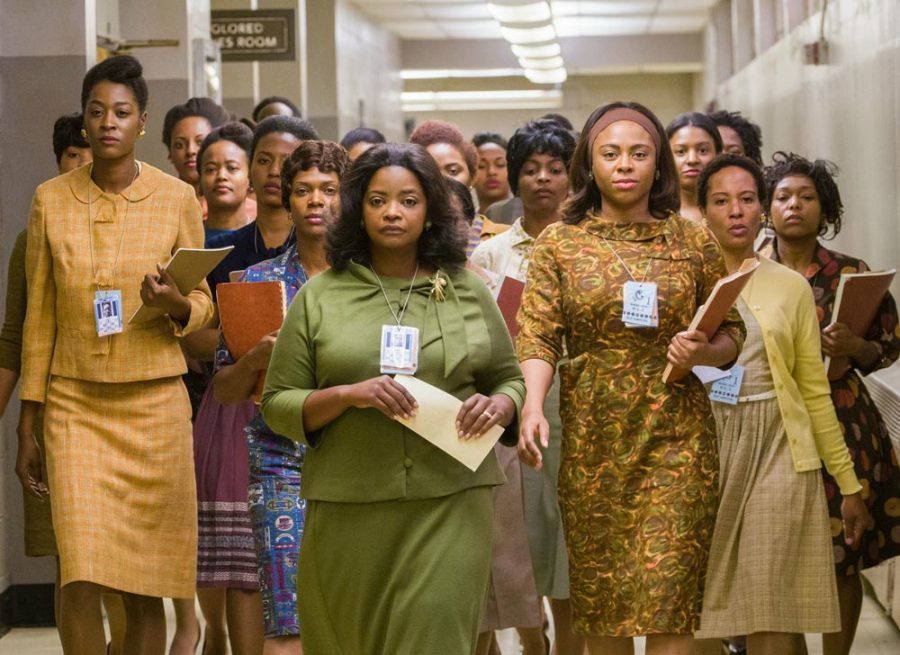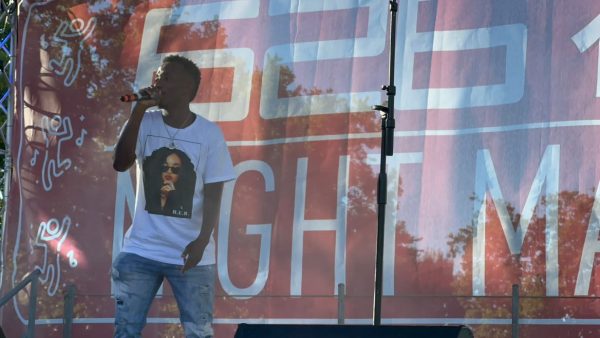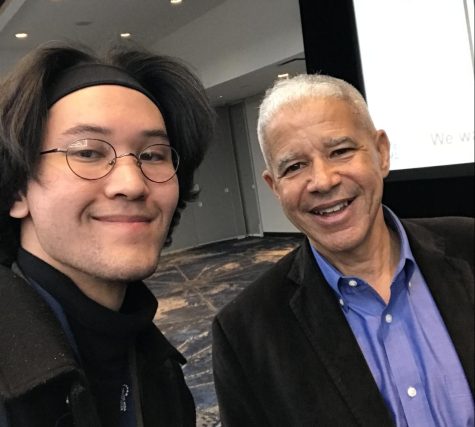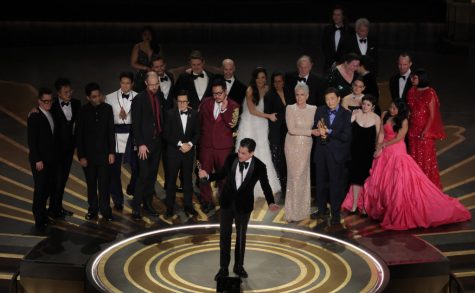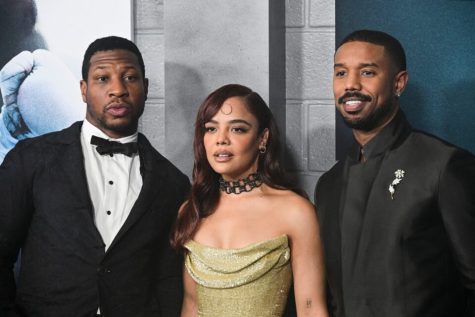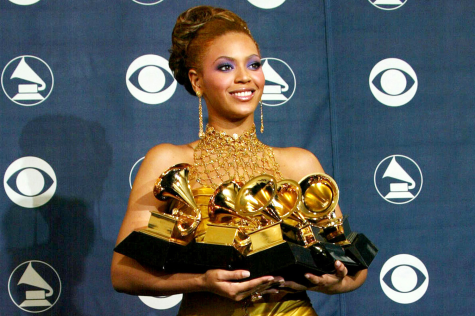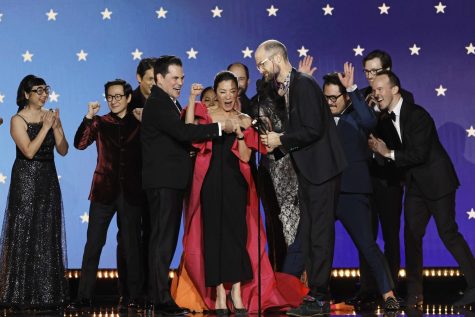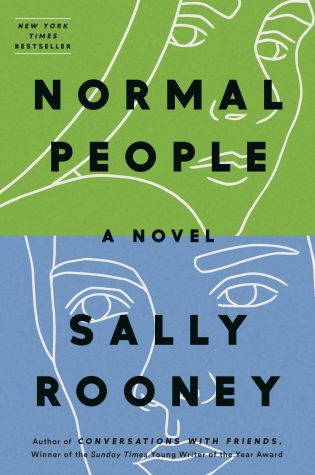Women Throughout History in the Arts and STEM: A Tribute to Their Contributions
March 31, 2021
Maha Sanad, STAFF WRITER Scarlet Schwenk, POLITICAL EDITOR
Women’s History Month is a time to honor women’s contributions to society. In honor of women in the arts and Science, Technology, Engineering, and Mathematics (STEM), we have curated an intersectional list of films, authors, artists, and important figures who propelled our technology forward, both historically and contemporarily.
Women in STEM History:
Hidden figures of women, especially women of color, have been left out of mainstream history throughout the world and especially in the United States. Women within the workforce of STEM account for one-fourth of the workers; of this number, women of color only make up five percent of total workers. In an effort to create an intersectional history, here are women who made significant contributions to the technological advancement of the United States.
Susan McKinney-Steward (1847-1918): The third African American woman to receive a medical degree in the United States and the first in the state of New York. McKinney-Steward put herself through medical school, graduating as the valedictorian. Her focus within the medical world was on childhood disease. She later co-founded the Brooklyn Women’s Homeopathic Hospital and Dispensary.
Susan La Flesche Picotte (1865-1915): The first Native American woman who earned a medical degree from Hampton University. After becoming a physician, Picotte worked as an advocate for the Omaha Tribe both medically and for land acknowledgment. She worked to retrieve the funds owed to the Omaha Tribe for the sale of their land and campaigned to treat and prevent tuberculosis.
Chien-Shiung Wu (1912-1997): A Chinese-American physicist who was recruited to work on the Manhattan Project and is credited with groundbreaking contributions in the fields of nuclear and particle physics. In the 1950s, Wu along with two male physicists disproved the law of conservation parity that had been accepted for more than 30 years. Wu did not receive recognition for her contributions to this groundbreaking discovery when her 2 male counterparts received the Nobel Peace Prize in 1957. However, Wu has since been credited as a key contributor to the discovery and has paved a path for women of color in STEM.
Dorothy Lavinia Brown (1919-2004): The first African American woman to serve at the Tennessee House of Representatives and the first African American woman to become a surgeon in the south. In her years as a representative, she advocated for women’s rights with autonomy over their bodies and for people of color.
Dr. Ellen Ochoa (born 1958): In 1993, Ochoa became the first Hispanic astronaut in space aboard the Space Shuttle Discovery. Ochoa received her Ph.D. in engineering from Stanford and later became the first Hispanic woman to take over the Johnson Space Center.
Films/Directors:
Women continue to break stereotypes placed upon them by society, however, they remain disproportionately underrepresented compared to their male counterparts. To increase a need for representation, we as consumers of mass media can do our part in actively purchasing or renting films produced by women.
“Films with at least one woman director had substantially higher percentages of women writers, editors, and cinematographers. On films with at least one female director, women comprised 73% of writers versus 12% on films directed exclusively by men. On films with at least one female director, women accounted for 43% of editors versus 18% on films directed exclusively by men. On films with at least one female director, women comprised 27% of cinematographers versus 8% on films directed exclusively by men,” Women and Hollywood reports.
Here is our list of female filmmakers and female-directed films:
“Waru” (2017): The first woman-directed Māori film in decades with nine female directors, Waru struggles with issues of patriarchy, death, loss of culture, and substance abuse. The all-female team of directors creates characters who are the superheroes in their own stories, honoring women for their role in society.
Ava DuVernay (born 1972): An American filmmaker who was the first Black woman to win the directing award in the U.S. dramatic competition at the Sundance Film Festival in 2012 for her film Middle of Nowhere. DuVernay sheds light on the realities of being Black in America with some of her most notable work being Selma, 13th, and When They See Us, all of which received critical acclaim for their storytelling and important conversations about race.
“Nomadland” directed by Chloe Zhao (born 1982): The 2020 film starring Frances McDormand is centered around a woman who left her life in society after her husband’s passing. The film explores life’s nuances, poverty, homelessness and is focused on the life of nomads in the modern-day. Most interactions that McDormand encounters are with real nomads, and the feature film is shot through cinematography that replicates one of the documentaries, emulating the realism of everyday life. The film has been nominated for several awards including Best Picture for the 93rd Oscar Awards on April 25, 2021. The film is now available on Hulu.
“The Queen’s Gambit” (2020): A drama mini-series available on Netflix starring Anya Taylor-Joy as the role of Beth Harmon, a young prodigy that uses tranquilizer stimulants to enhance her strategies in chess. The mini-series explores euphoria, accomplishment, mourning, and many other aspects of the human condition all experienced through Harmon. Joy’s character is incredibly witty, intelligent, and always knows how to handle situations both in her professional and personal life. Joy’s portrayal of Beth Harmon granted her many awards and even won the award for “Best Performance by an Actress in a Limited Series.” Anya Taylor-Joy is also known for her roles in The VVitch (2015), Split (2016), Emma (2020), and more.
“Hidden Figures” (2016): Starring Janelle Monáe, Taraji P. Henson, and Octavia Spencer as three women mathematicians who served a crucial role in sending John Glenn into space. This is the highlight film that showcases African-American history and women’s excellence, as the audience follows the women through their trials and tribulations that they endured as they set the operation in motion. The film has won many awards and is available through subscription on Disney+.
“The Kingmaker” (2020): A documentary directed by American filmmaker Lauren Greenfield, telling the tale of Imelda Marcos, wife of former president Ferdinand Marcos of the Marcos Family, and their controversial leadership of the Philippines. The film focuses on the Marcos Family and mostly follows the infamous Imelda Marcos, interviewing her and her experiences as the first lady of the Philippines during the 1960s through the 1980s. The film is available on Amazon Prime Video for streaming.
Greta Gerwig (born in 1983): An American director from Sacramento, CA most notable for her 2017 film “Lady Bird,” which focuses on the coming of age of young women in America. Lady Bird follows fictional character Christine McPherson who changes her name to Lady Bird and is referred to as this moniker for the entirety of the film. Saoirse Ronan, recognizable from the 2014 film Grand Budapest Hotel, is electric in this film. A young teenager searching for direction while navigating through her transition into womanhood. The film is awkward, visceral, and honest, a great film relatable to young women everywhere, and is viewable on Netflix. Gerwig’s recent film is a more historic take on the young women coming of age films, released in 2019 titled, “Little Women.” The film is focused on the March sisters, and their determination to live their life subverting the expectations of womanhood. Jo March, also performed by Saoirse Ronan, is the protagonist of the film and experiences the same intrinsic ambition as Lady Bird to live life through her own lens rather than the view of her mother. Little Women is available for viewing on Hulu.
“The Farewell” (2019) directed by Lulu Wang (born in 1983), deals with the death of a family. Through the perspective of Billi, played by Awkwafina, the audience is able to live through a western character processing an event that occurred in the east. As Billi’s family is informed that her grandmother has a few more weeks to live, the family travels to China to spend time with the grandmother, also known as Nai-Nai. Billi’s western beliefs revolve around the idea that she must let Nai-Nai know that she’s going to pass in a few weeks so that her grandmother can settle any lingering affairs left. Billi’s parents believe in eastern ideals that they should just spend time with Nai-Nai and allow her to live her life oblivious to the idea and still experience life authentically without the daunting knowledge. Throughout the film, viewers are able to understand Billi’s inner conflicts of understanding both eastern and western ideals through Awkwafina’s performance. The A24 film is available on Amazon Prime Video for streaming.
Olivia Wilde (born in 1984): an American actress turned director by 2019. Wilde is known for her roles in Tron: Legacy (2010), The Change-Up (2011), and 2019’s Richard Jewell. Wilde made her directorial debut in 2019 with her film “Booksmart” following Amy and Molly through their last few days of their senior year. This film is also a coming-of-age woman story, although filmed and portrayed through a less dramatic lens. Compared to Lady Bird, Booksmart is definitely more lighthearted and examines the complexities of teenage life at a crucial time of all young adults’ lives; high school graduation. Wilde is also set to release another film in 2022 titled, “Don’t Worry Darling,” a psychological thriller of a nuclear family taking place in the 1950s. Wilde’s transition from actor to director is truly inspiring as someone who has been in the industry for 17 years, definitely a role model for young aspiring female filmmakers.
Authors:
While there is an ever-growing presence of women in the literacy industry, their male counterparts continue to outsell by about 10 million books per year. Gender-bias continues to exist within books as an overwhelming majority (64 percent) of protagonists in stories are male. To combat this, we as readers should evaluate who we have on our bookshelves and understand the authors’ intersectional identities: class, race, and gender. To make this adventure easier, here is a list of authors from intersecting identities:
Chimamanda Ngozi Adichie: A Nigerian author who is known for both her fiction and non-fiction stories often revolving around topics of race, culture, immigration, assimilation, war, and politics. Adichie focuses on the intersectional feminist perspective with some of her most notable work being We Should All Be Feminists and Americanah. Adichie is able to perfectly portray the struggles and perspective of being a Black immigrant in America by infusing her stories with some of her own personal experiences.
Tracy Deonn: Legendborn is the debut young adult fantasy novel by Black author Tracy Deonn. This story follows a young Black teenage girl who’s grieving the loss of her mother, discovering her powers, and attends a historically white magic society. Taking inspiration from “Arthurian legend,” Deonn creates a magical world with a unique main character perspective of a young Black girl in a predominantly white setting. The story, characters, and Deonn’s writing have cemented Legendborn’s place on the New York Times bestseller list.
Malala Yousfazsi, Christina Lamb: I Am Malala: The Girl Who Stood Up for Education and Was Shot by the Taliban is an autobiography by feminist and social activist detailing her struggle for achieving women’s education in Pakistan. The gripping tale of Malala has won multiple awards for her activism for women’s rights, informing the world of women’s struggles in Pakistan.
Elena Favilli: Good Night Stories for Rebel Girls: 100 Tales of Extraordinary Women, a short and sweet book for those who want to increase their education about women throughout history, including biographies of the women in addition to portraits. A read at your own pace to provide further information about the women who changed history.
Kate Bolick: Spinster: Making a Life of One’s Own journalist Kate Bolick explores the modern women’s non-desire to have children and remain unmarried, not subscribing to the nuclear family ideology. A book of comfort and wit, Bolick informs and brings awareness to the human nature of being a woman.
Michelle Obama: Becoming Mrs. Obama details her childhood and life leading up to the eight years she and her family spent in the White House, articulating her experiences and hardships that come with being the first Black First Lady. She discusses her time in the White House and impact as First Lady of the House in addition to her love story with Mr. Obama.




